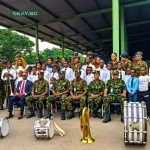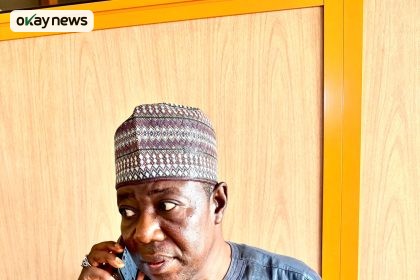The Federal Government has announced plans to significantly expand the National Home-Grown School Feeding Programme to cover 50 million primary school pupils across Nigeria by 2026.
Aderemi Adebowale, National Programme Manager of the National Social Investment Programme Agency, disclosed this development during an interview with Jounalists.
According to her, the government is making efforts to ensure that the initiative extends to children in the early years of education — from primary one through six — while also working to integrate out-of-school children into the scheme gradually.
“So, by the year 2026, we are looking at feeding close to 50 million pupils in primary school in Nigeria,” Adebowale stated.
She further explained that the cost of feeding each child has been estimated between ₦500 and ₦1,000, stressing that even at the lower end, nutritious and balanced meals can be provided daily.
Adebowale highlighted the importance of cost control, noting that the agency had formed a strong alignment with smallholder farmers, aggregators, supply chain actors, and development partners.
“With this alignment, we’ll be able to control price from the rock bottom. We are not going to be doing market prices. So, we have to agree on prices from our suppliers, agri-vendors, and farmers to arrive at a reasonable cost per plate. Once we do that, we will follow up on the payment and service delivery,” she said.
It would be recalled that on May 27, 2025, the Federal Government inaugurated the Alternate Education and Renewed Hope National Home-Grown School Feeding Project. The programme was designed to provide meals for 20 million out-of-school and underserved children by 2026.
The launch, which took place in Abuja, was led by the then Minister of Humanitarian Affairs and Poverty Reduction, Professor Nentawe Yilwatda, who is now the National Chairman of the ruling All Progressives Congress.
The initiative is implemented in partnership with the National Commission for Almajiri and Out-of-School Children Education and the National Identity Management Commission to ensure effective monitoring and delivery.
okay.ng reports that this project is part of President Bola Tinubu’s Renewed Hope Agenda and aligns with his administration’s commitment to tackling poverty, improving child nutrition, and enhancing educational participation.







